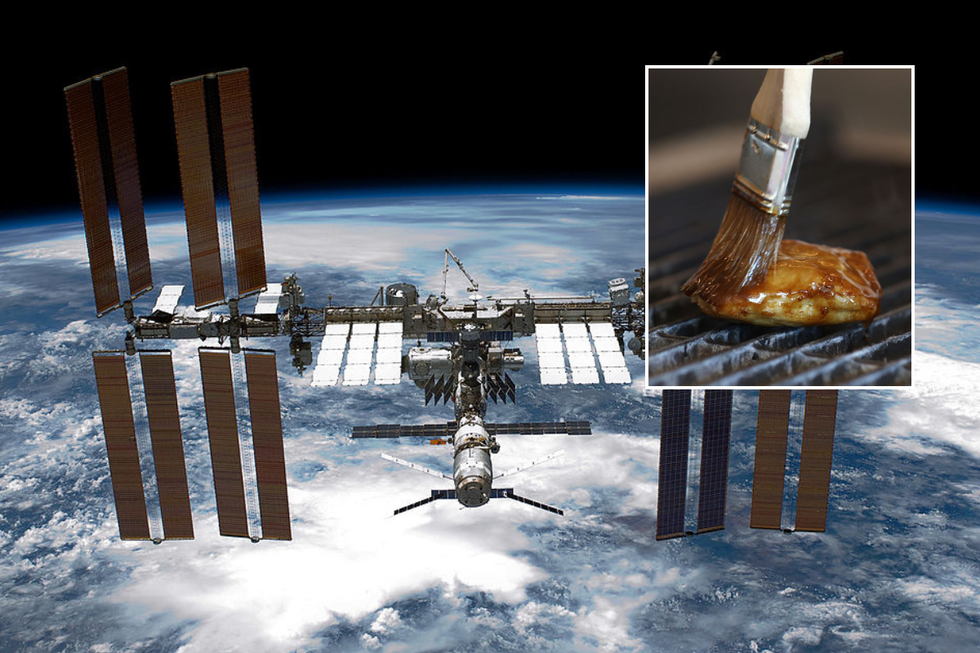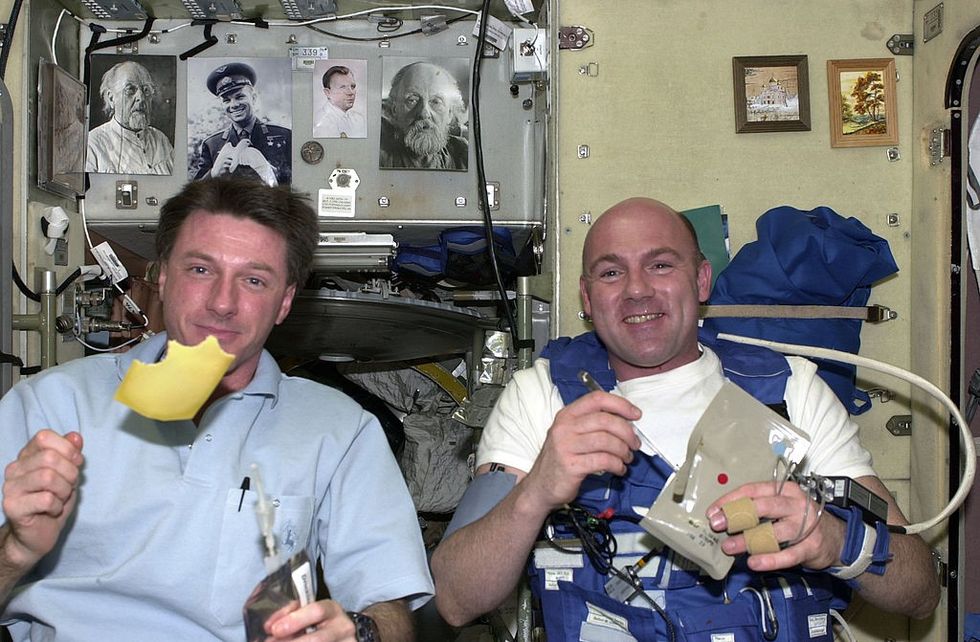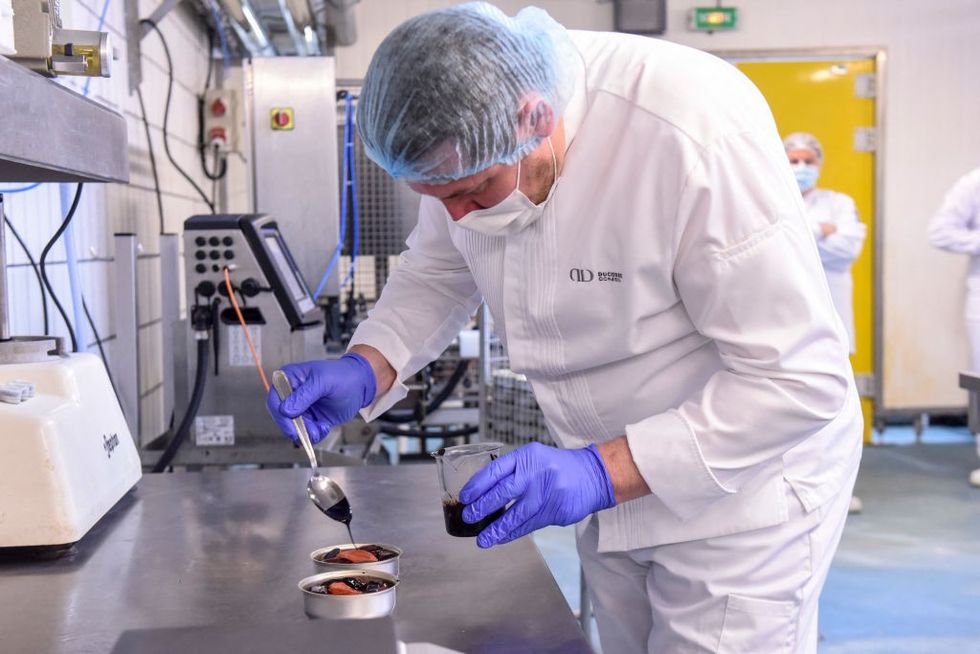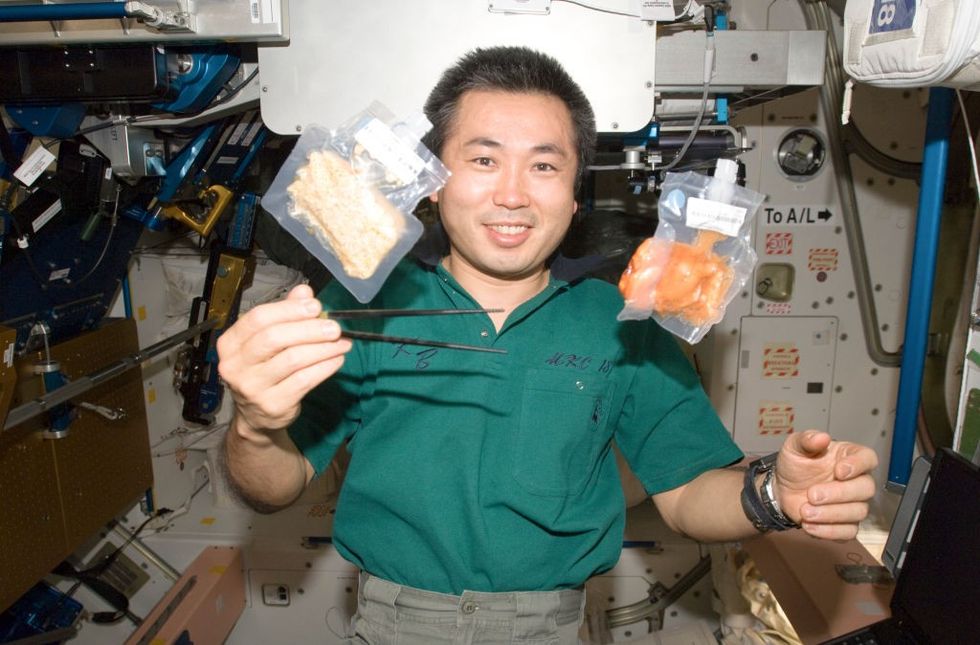Food for astronauts could soon be grown in SPACE as revolutionary experiment launched into orbit
WATCH: British astronaut makes worlds first space video call
Scientists say the move would cut costs and provide better quality food for scientists in space
Don't Miss
Most Read
Trending on GB News
A revolutionary experiment launched into orbit today could pave the way for astronauts to enjoy steak, mashed potatoes and desserts grown in space.
The European Space Agency (ESA) project is testing whether lab-grown food can be successfully produced in the low gravity and higher radiation environment of space.
If successful, the experiment will be a crucial first step towards developing a small pilot food production plant on the International Space Station within two years.
The technology involves growing food ingredients from individual cells in test tubes and vats.

The International Space Station could be seeing lab grown meat arrive for astronauts
Getty

European Space Agency (ESA) astronaut Andre Kuipers (R) and his NASA colleague Michael Foale eat Dutch cheese for breakfast in 2004
Getty
ESA is funding this research to tackle the astronomical cost of feeding astronauts in space, which can reach up to £20,000 per day per person.
"Our dream is to have factories in orbit and on the Moon," Dr Aqeel Shamsul, CEO of Bedford-based Frontier Space, told BBC News.
His company is developing the concept alongside researchers at Imperial College London.
"We need to build manufacturing facilities off world if we are to provide the infrastructure to enable humans to live and work in space," he added.
LATEST SPACE NEWS

A chef from French chef Alain Ducasse's team prepares a low-temperature cooked salmon for the French astronaut Thomas Pesquet
Getty
Lab-grown food involves producing proteins, fats and carbohydrates that are processed to resemble normal food. This technology is already making inroads on Earth, with lab-grown chicken available in the US and Singapore, while lab-grown steak awaits approval in the UK and Israel.
While environmental benefits drive adoption on Earth, cost reduction is the primary motivation for space applications.
"We could start off simply with protein-enhanced mashed potatoes on to more complex foods which we could put together in space," explains Dr Shamsul.
"But in the longer term we could put the lab-grown ingredients into a 3D printer and print off whatever you want on the space station, such as a steak!"

Japan Aerospace Exploration Agency Astronaut Koichi Wakata, pictured in 2009
Getty
A much smaller version of the bioreactor used in labs on Earth has been sent into space on a SpaceX Falcon 9 rocket as part of the ESA mission.
Drs Rodrigo Ledesma-Amaro and Shamsul have placed small amounts of a yeast concoction in a cube satellite aboard Europe's first commercial returnable spacecraft, Phoenix.
The satellite will orbit Earth for approximately three hours before falling back to Earth off the Portuguese coast. A recovery vessel will retrieve the experiment and return it to London for examination.
The data collected will inform the design of a larger bioreactor for next year's mission. The challenge, however, is making the brick-coloured powder derived from the process appetising for astronauts.

Britain's first astronaut Helen Sharman
PA
Imperial College's culinary education designer Jakub Radzikowski is tasked with transforming these ingredients into delicious meals.
"We want to create food that is familiar to astronauts who are from different parts of the world so that it can provide comfort," he says.
Helen Sharman, the UK's first astronaut, sampled Radzikowski's spicy dumplings and was impressed.
"You get a really strong blast from the flavour. It is really delicious and very moreish," she beamed.







